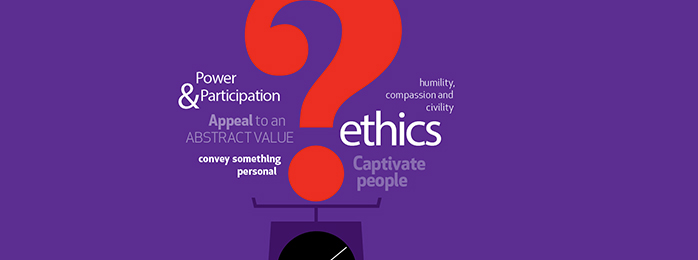
What Is Influence, and How Do You Measure It?
With the rise of social media, everyone -- from companies to brands to individuals -- wants to be "influential." But what exactly is "influence," and how do you measure it? Weinberg College alumni, students, and faculty took on the question in the fall/winter 2015 issue of Weinberg magazine. Here's what they had to say....
Everyone knows wealth is power in the business world. But it is also among the most versatile and impactful forms of social and political power. Wealth is more concentrated in a few hands now than it was in imperial Rome. Each of the richest 500 senators in Rome had 10,000 times the wealth of the average person. In the U.S. today, the richest 500 each has over 20,000 times the wealth of the average American. And they use that wealth aggressively to shape the nation’s politics and especially to defend their wealth. The United States has always been a mixture of participation power and wealth power. This interplay between the influence of democracy and oligarchy is the most important dynamic in America today.
Jeffrey A. Winters
Professor of political science and director of the Equality Development and Globalization Studies Program
Influence involves the power to change someone. To me, that brings in the kinds of questions that Aristotle raised in the Nichomachean Ethics and that Maslow explored in his hierarchy of needs, as well as issues of humility, compassion and civility. It’s not a simple conversation. There are so many false idols now. The older I get, the more I feel a responsibility to set a good example. I have to teach my son how to separate the wheat from the chaff in this very complicated life.
Lara Abrams-Melman ’92
Managing partner, Lara Abrams Communications
Influence happens when you get people to become customers, followers or fans. Captivating people involves triggers. There’s the “reputation” trigger — we trust experts over any other type of spokesperson. Even stronger is the “acknowledgement” trigger: you capture attention by building a deeper relationship, by acknowledging your audience and what they care about. But there is only one metric that really shows influence, and that is re-engagement. You know you’ve exerted influence when people re-purchase your product, or return again and again to use your app, or invite you to speak again at their event. It’s repeat business.
Ben Parr ’08
Co-founder and managing partner, DominateFund; author of Captivology: The Science of Capturing People’s Attention
At The Daily Northwestern, we count page views. But page views, Facebook likes and Twitter followers are not necessarily indicators of true influence. Articles might get a lot of page views if the writers are loud and eloquent, especially if they’re dealing with contentious issues like race, sexuality or politics. But just because you’re a good writer doesn’t mean you’re a good thinker, and just because you’re discussing something controversial doesn’t mean you’re influential. I like my columnists to be idiosyncratic, to write about their personal passions. The most influential people tend to be those who reach out and convey something personal.
Angela Lin ’17
Opinion page editor for the Daily Northwestern
I’ve actually been looking at the issue of influence for my senior thesis — I’m researching the legislative history of the national park system. Even though local constituencies often were not in favor of preserving an area, conservation still became a powerful cause. Politicians like Theodore Roosevelt, influenced by thinkers like John Muir, latched onto the abstract idea of wilderness as an aesthetic and cultural value. When we debate environmental issues today, whether it’s fracking or drilling in the Arctic, we talk about competing interests and long-term versus short-term benefits. But maybe you can change people’s minds more effectively by appealing to an abstract value or a fundamental assumption like the right to a sustainable environment.
Noah Star ’16
President, Northwestern University Associated Student Government